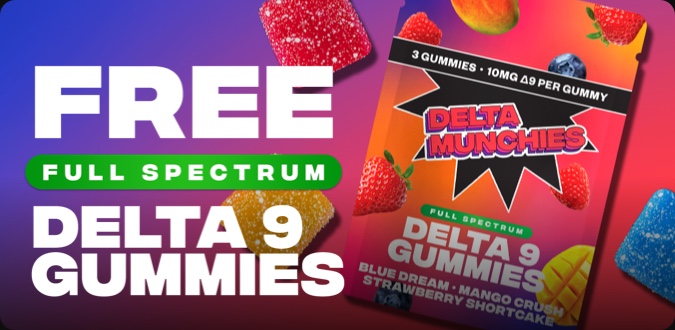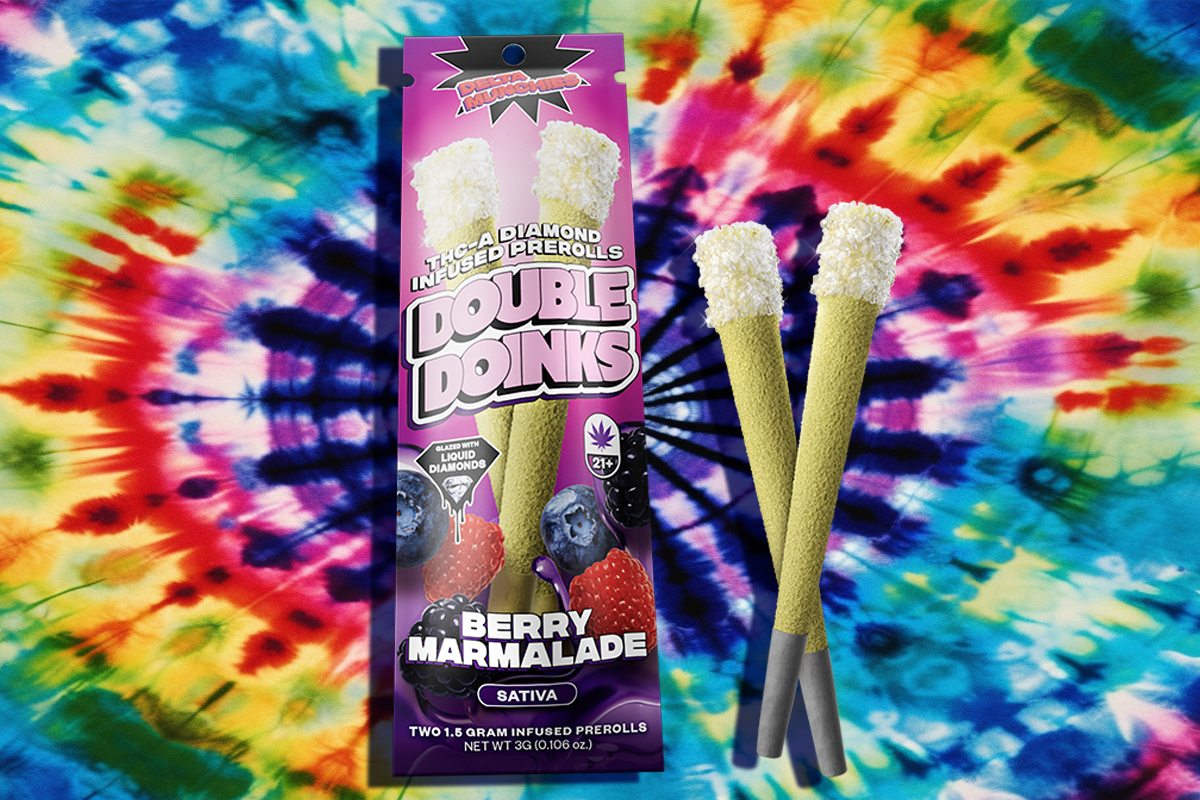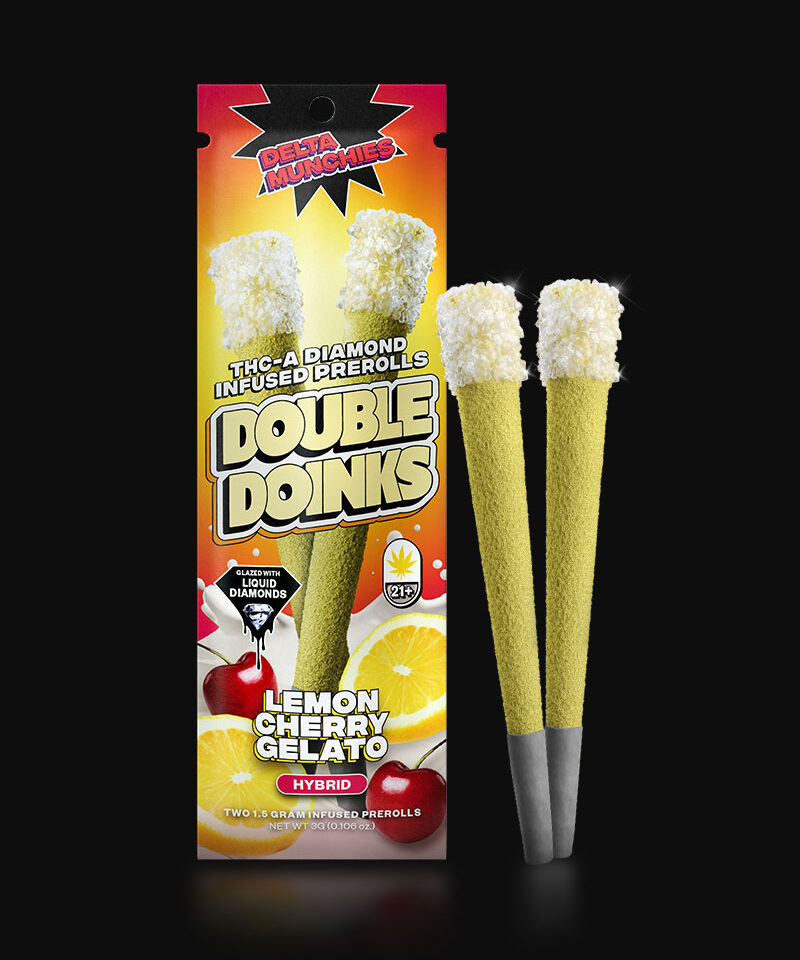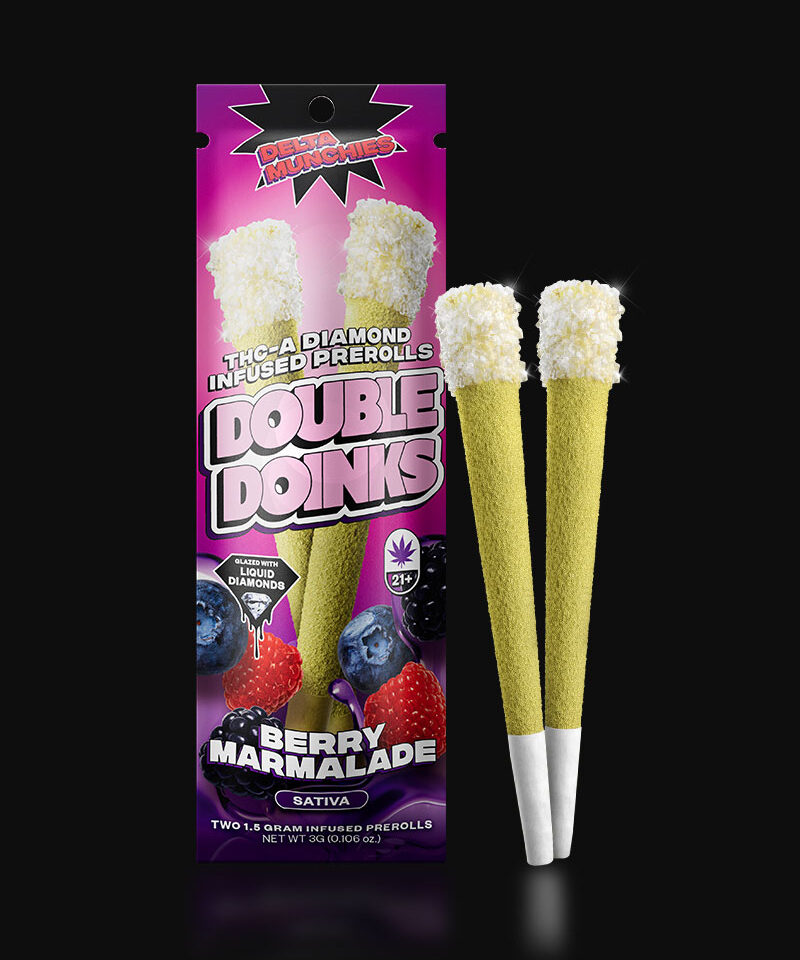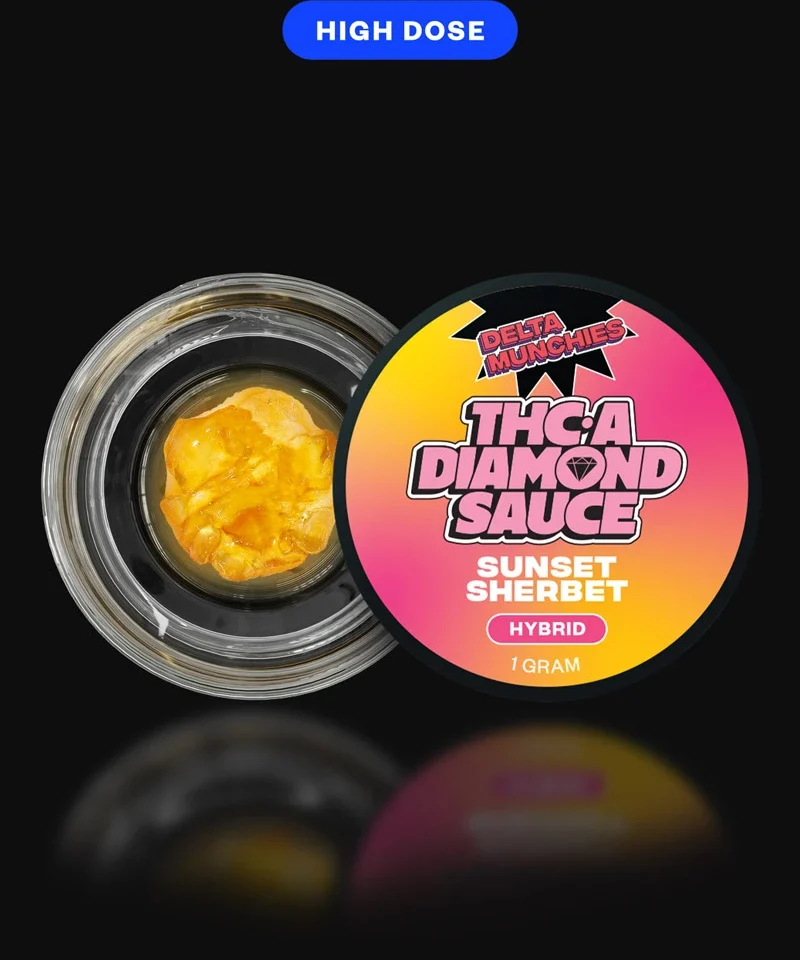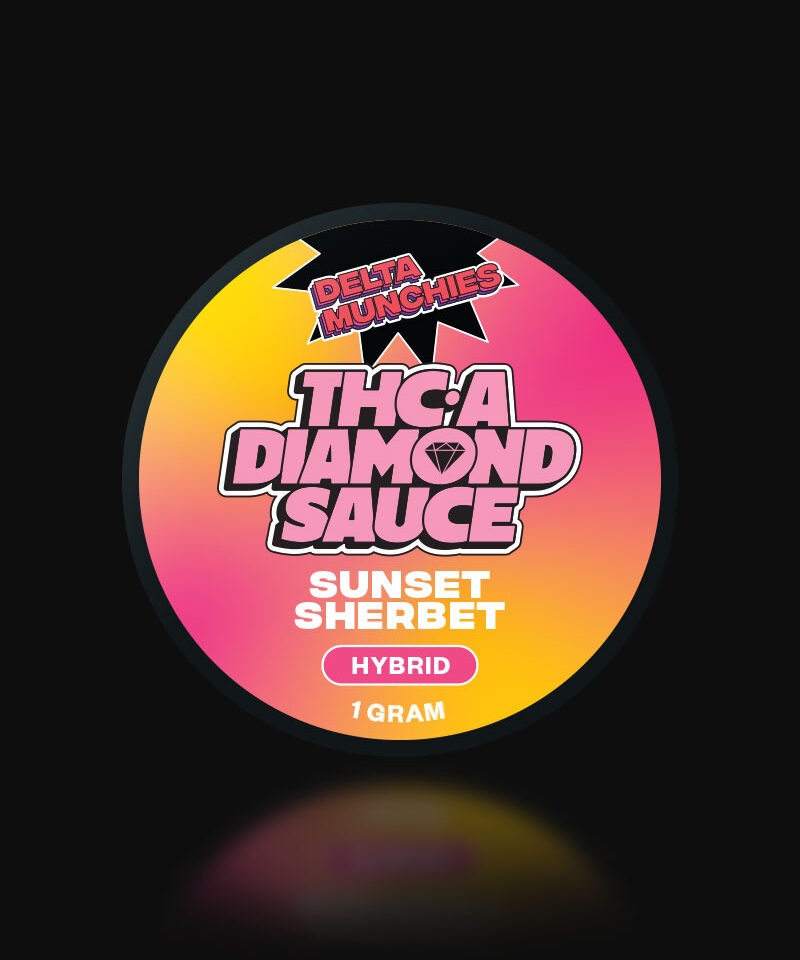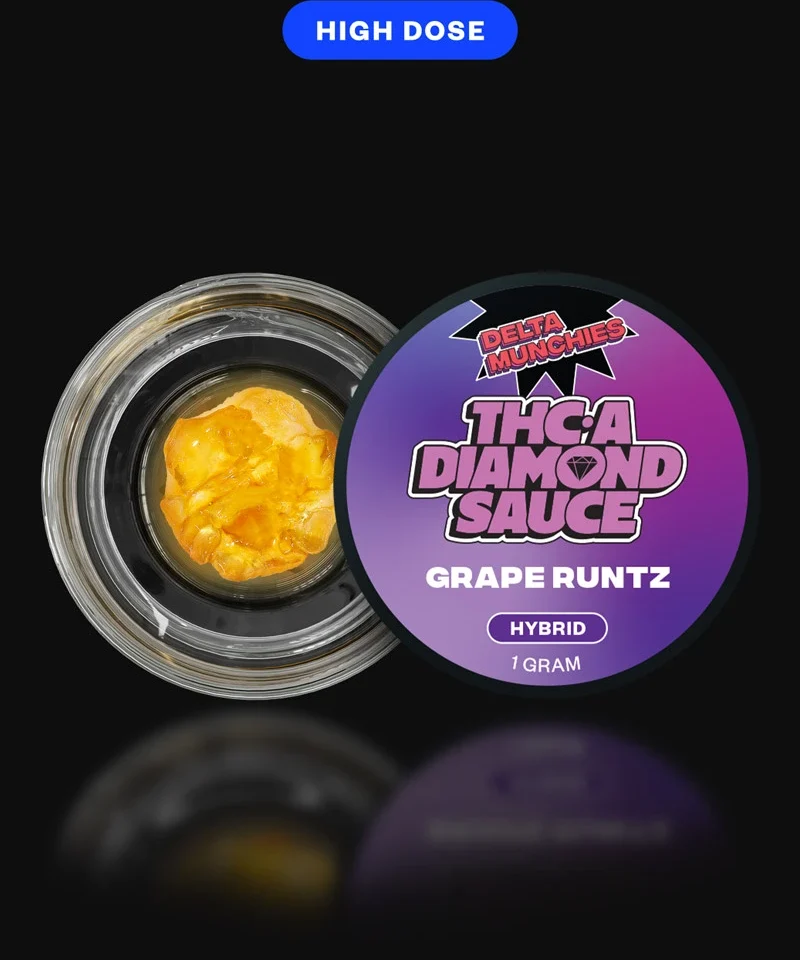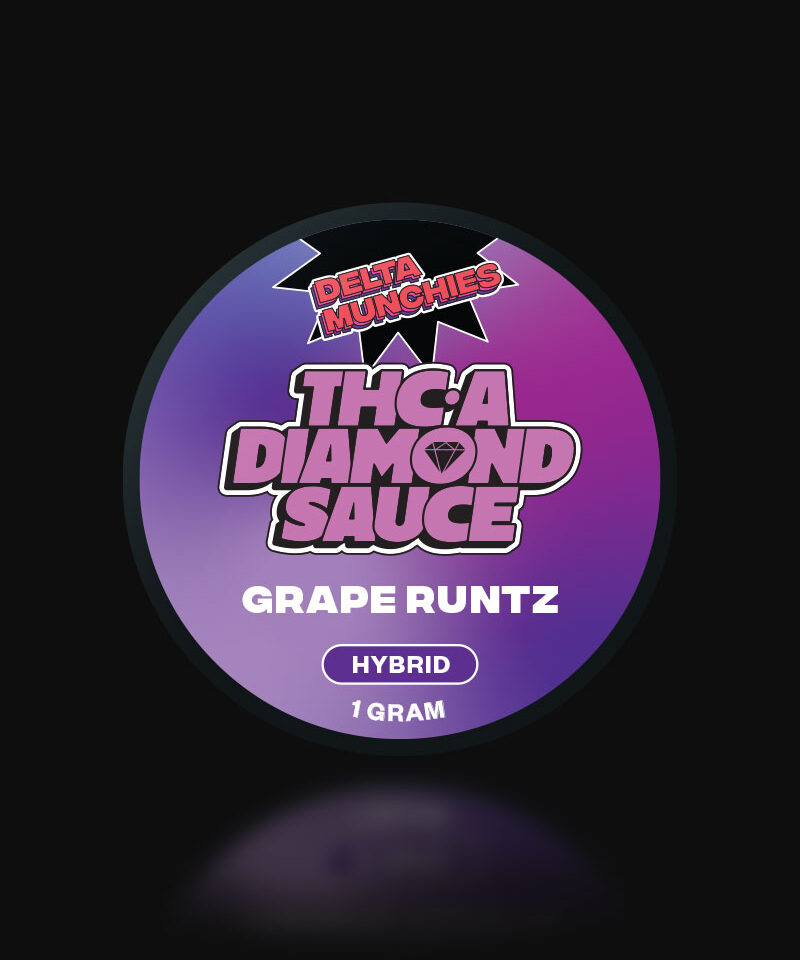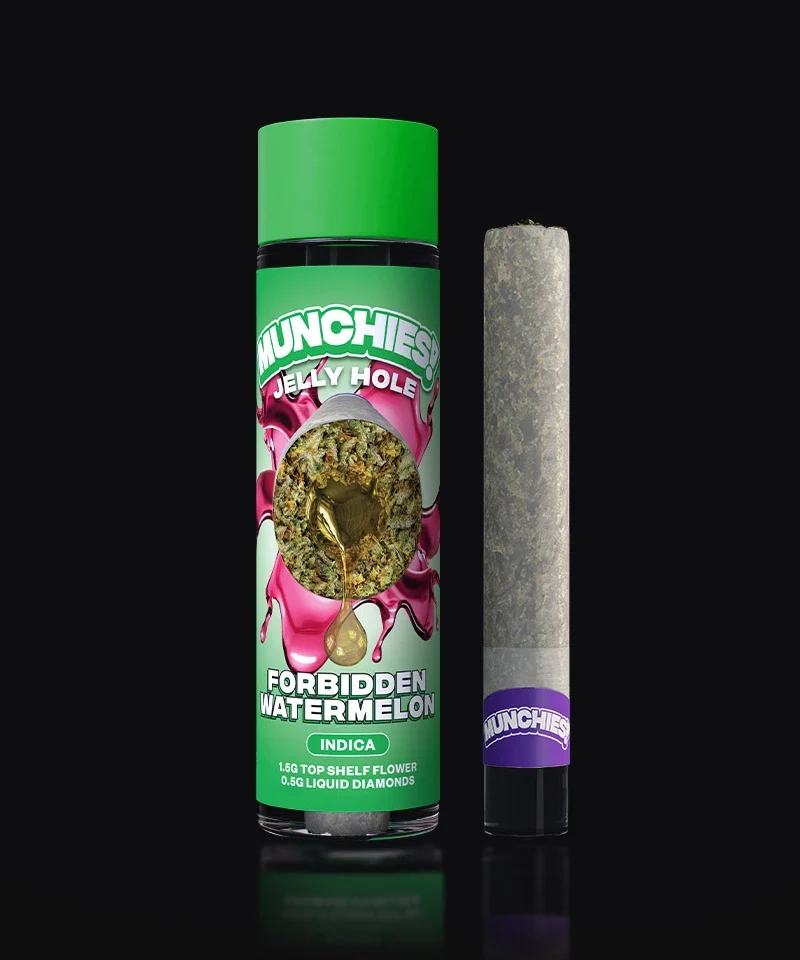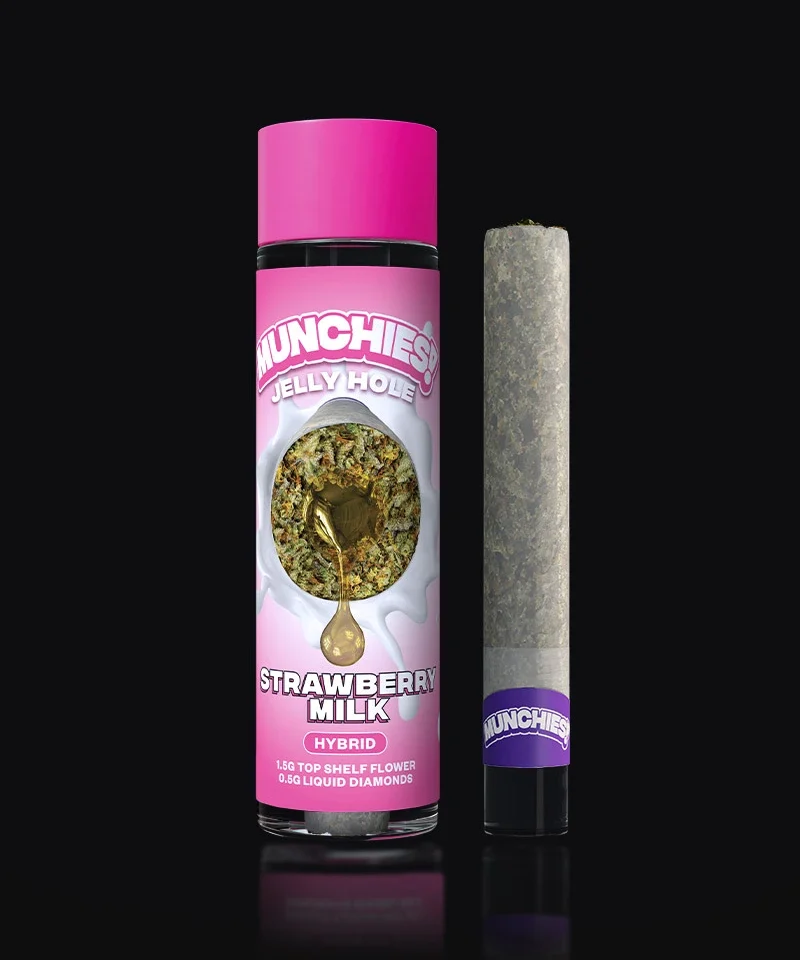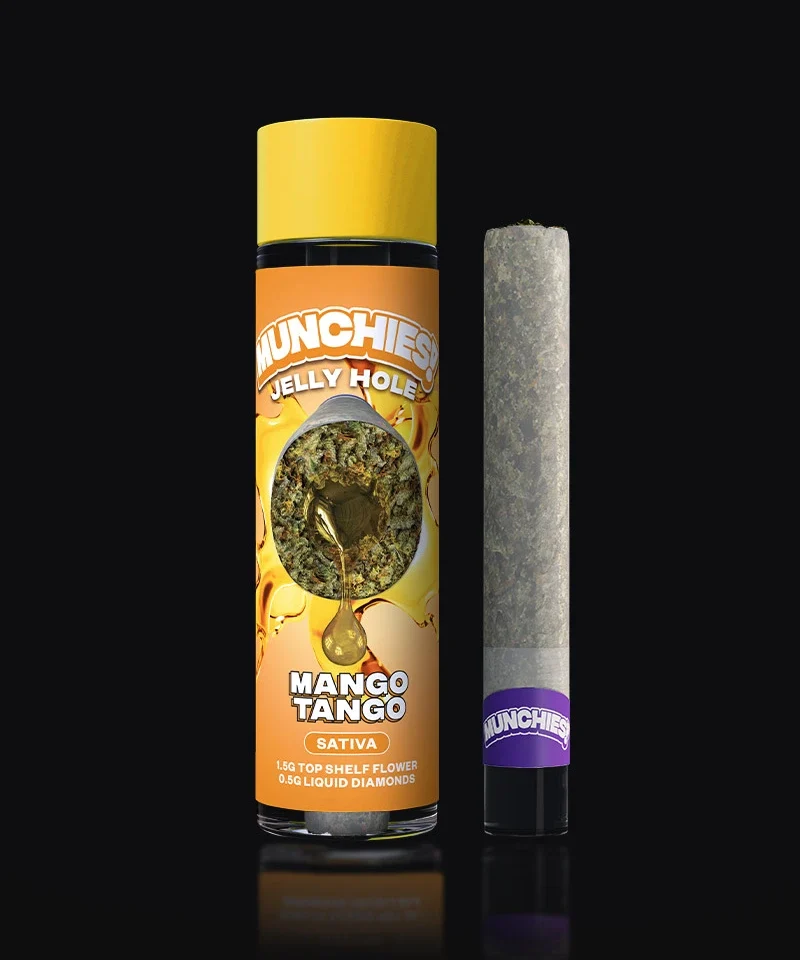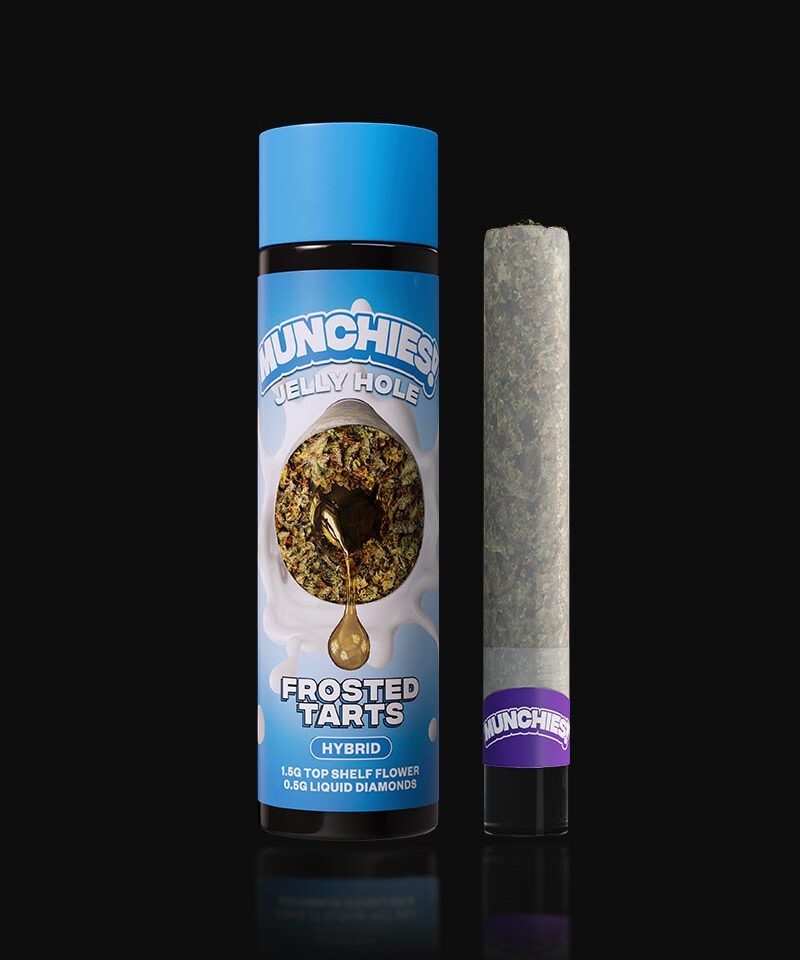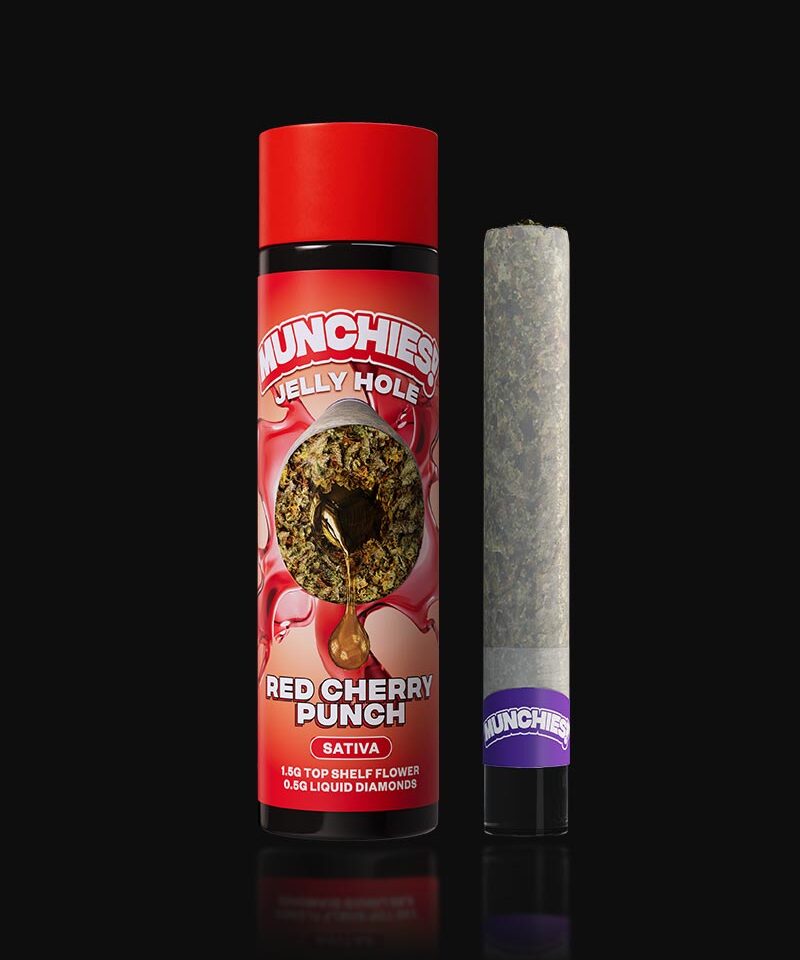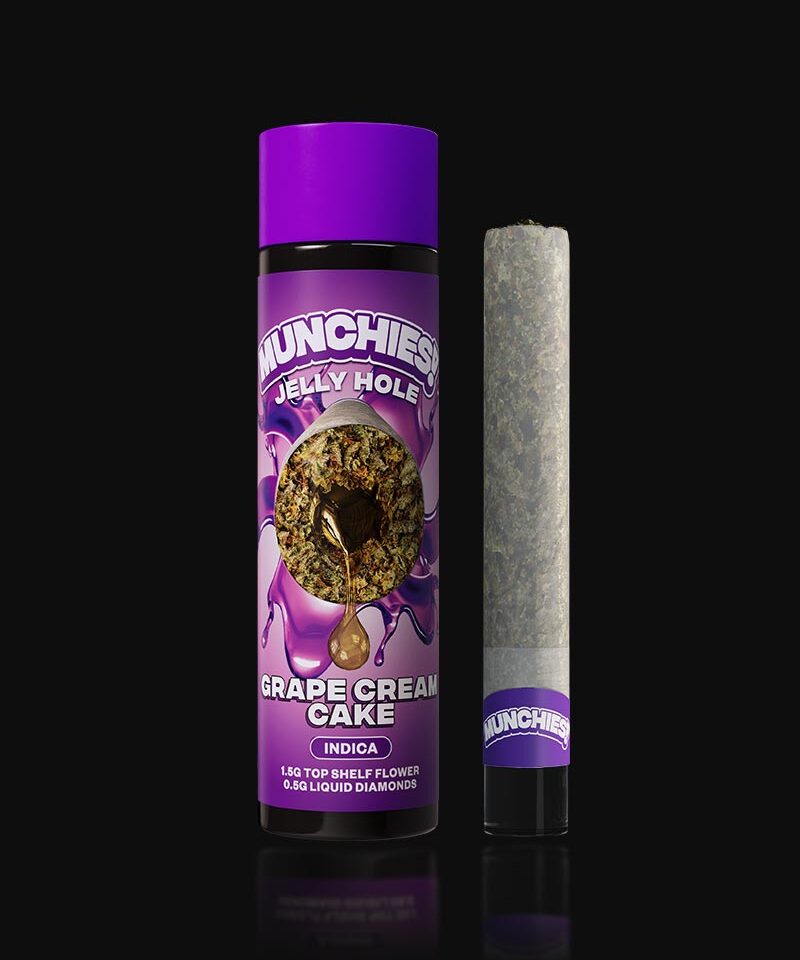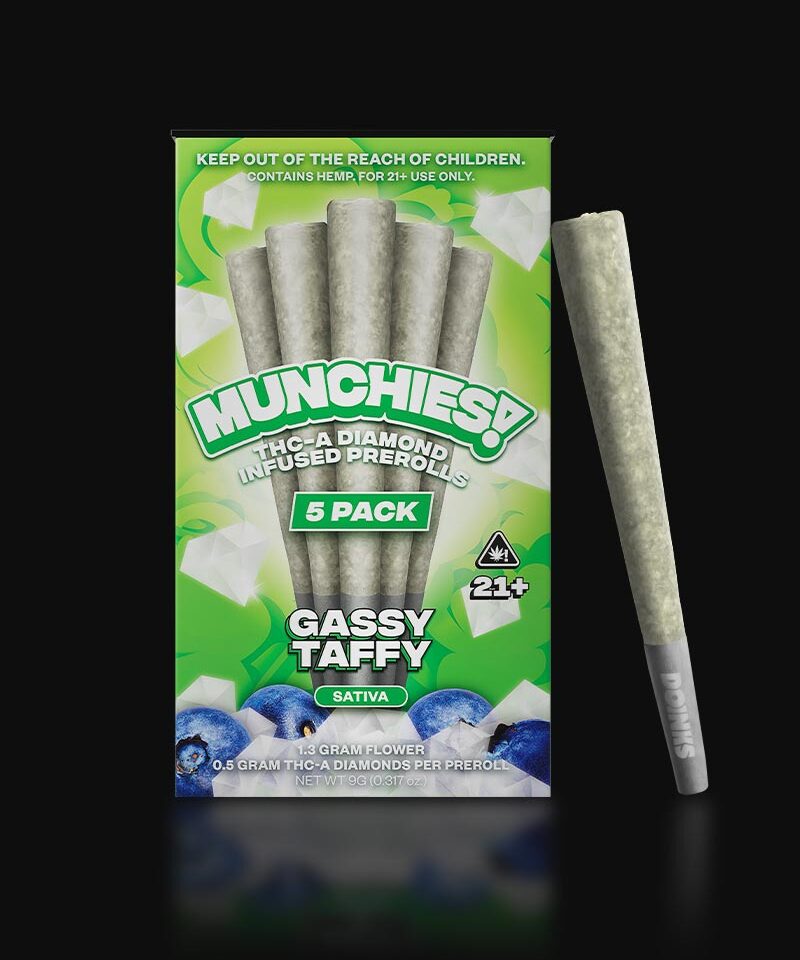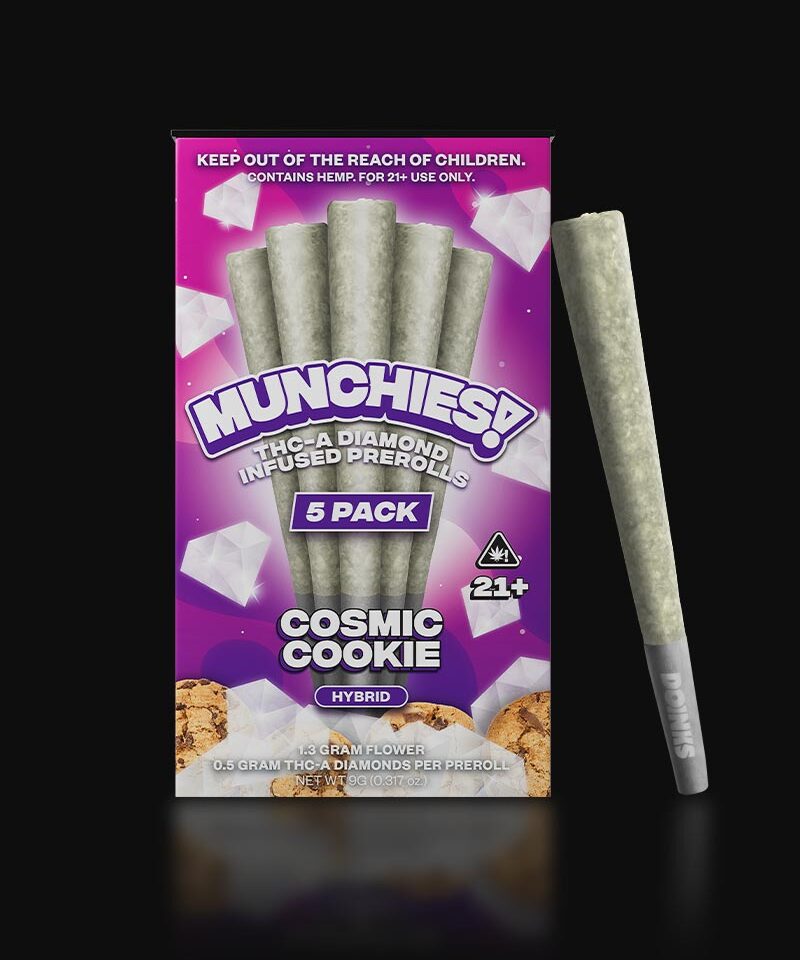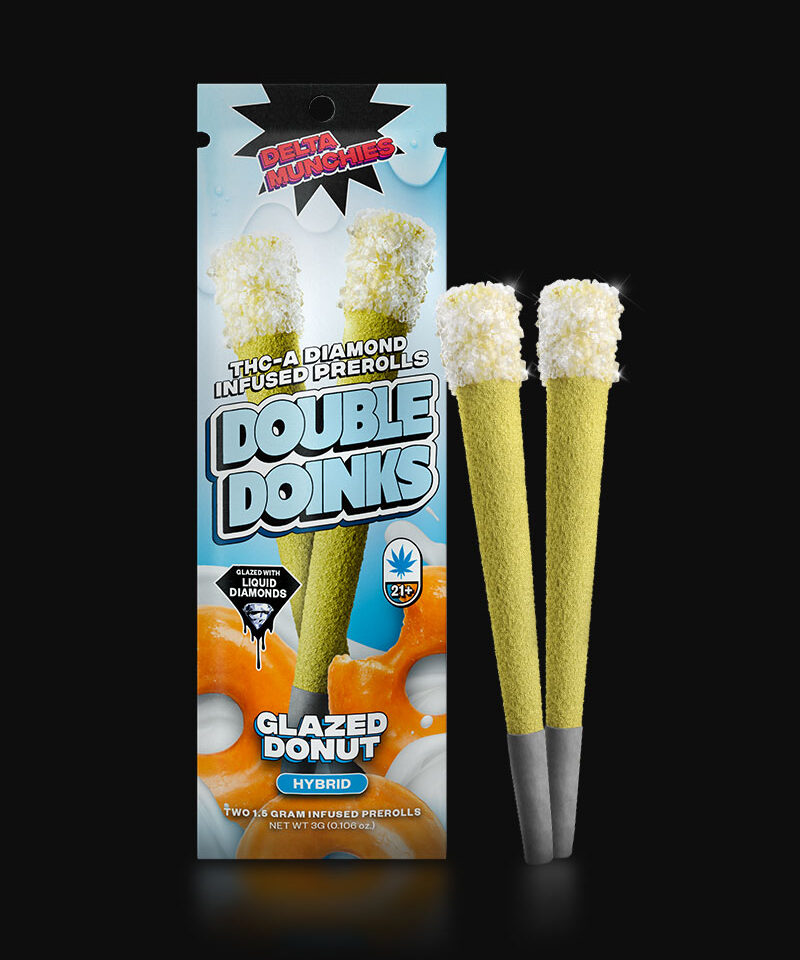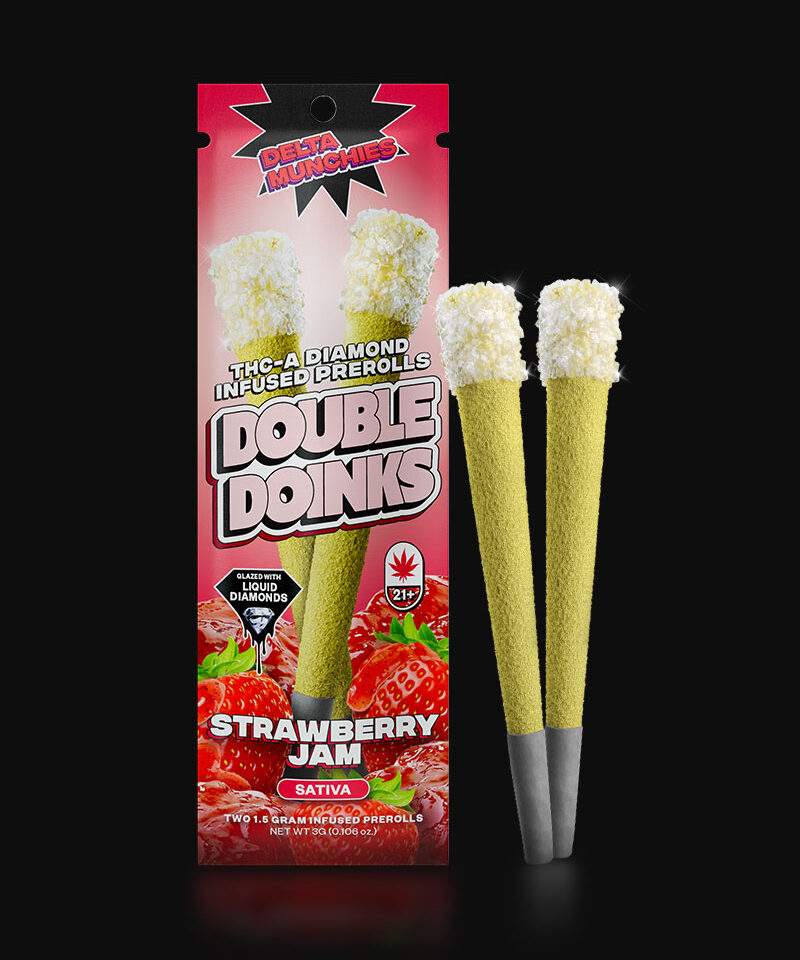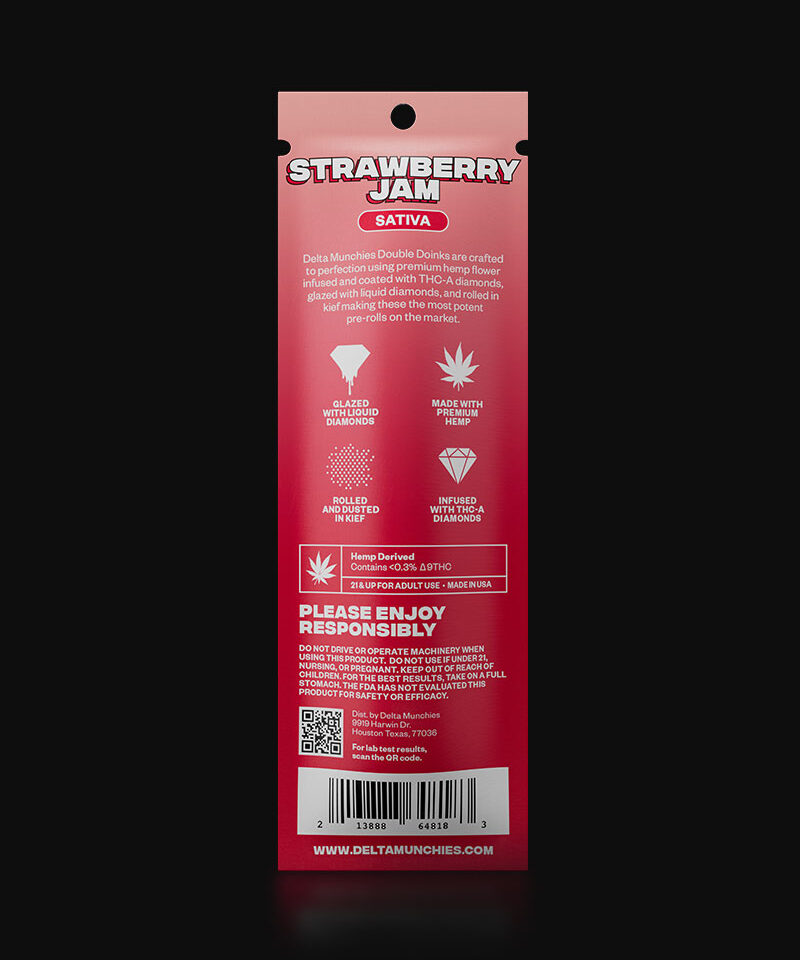Informative, Lifestyle
How Long Does THCA Stay in Your System?
You may have heard about famous athletes who got into problems for using cannabis. There is a high chance they were not well informed about the pharmacodynamics of cannabis—an area many users are understandably not quite familiar with. This is essentially the physiologic and biochemical effects of various cannabis compounds.
So, if you use cannabis or one of its many products, you should learn about the duration cannabis compounds last in your system. And if you are in a profession where drug testing is routine, it would be best, perhaps, to pay more attention. The consequences of failing a drug test can be severe!
In this article, we explain how long THCA (tetrahydrocannabinolic acid) stays in your system. We also look at other important aspects of THCA, explaining why you should keep them in mind. Let’s get to it, shall we?
Delta Munchies has got you covered with the best in class THCA products. Check ’em out!
THC-A Diamond Infused Prerolls
Featured Products
Live Resin THC-A Dabs
Live Resin THC-A Dabs
Contents
Key Takeaways
- THCA is not usually tested for in drug tests. Instead, these tests primarily target THC metabolites.
- While THCA is non-psychoactive in its natural form, it becomes psychoactive when exposed to heat because it changes to THC.
- Though research on THCA is young, preliminary findings suggest it may have significant therapeutic benefits.
- The duration THCA stays in your system is approximate and depends on several factors. However, it does not last as long as THC.
What is THCA?
THCA is one of the two main precursor compounds in cannabis; the other is CBDA (cannabidiolic acid). As you might have already guessed, these are the compounds from which delta 9 THC and CBD originate. These two are a big deal in the hemp industry thanks to their potential therapeutic benefits.
THCA occurs abundantly in live, young cannabis plants. Of course, its concentration in these plants depends on a host of factors, including growing conditions and strain characteristics. So, different strains have varying THCA content.
This compound is non-psychoactive, meaning it does not make you high. If you have ever chewed cannabis buds and wondered why you did not get stoned, now you know. However, the line between intoxication and non-intoxication is thin, owing to how fast THCA changes into delta 9 THC.
Like other cannabinoids, THCA is fast becoming popular among cannabis enthusiasts due to its potential benefits. Research shows that this cannabinoid possesses anti-inflammatory, anti-emetic, neuroprotective, and anticonvulsant properties. For this reason, growers are putting more effort into developing THCA-rich strains.
And besides being naturally plentiful and non-psychoactive, one thing going for THCA is that it is less scrutinized than THC.
THCA vs. THC
The link between THCA and delta 9 THC is heat. In other words, heat is all you need to convert THCA into delta 9 THC via decarboxylation. The conversion involves THCA losing a carboxyl (COOH) functional group and adopting a hydroxyl (OH) group.
When this happens, the psychoactive delta 9 THC forms. Obviously, if you use cannabis, you are familiar with the head high it creates. Depending on how much THC you take, the experience can be pleasant, leaving you looking forward to the next session. Or, it could be a day you will never forget!
THCA changes into THC when exposed to temperatures between 200°–250°F (93-121°C). Drying and curing cannabis material also transforms some THCA into delta 9 THC. However, the process is much slower owing to the low temperatures. Light and air also aid the decarboxylation of THCA, which means the best way to get THCA is from freshly harvested cannabis.
On matters of law, THCA is broadly accepted as legal because it naturally exists in hemp. The 2018 Farm Bill that legalized hemp also recognizes the various compounds in hemp. As a result, THCA is legal under federal law.
However, there are places where the legality of THCA remains a gray area. These places have a blanket ban on THC isomers, meaning anything remotely related to THC is not permissible. One such place is Idaho.
What about delta 9 THC, you may ask? The legality of delta 9 THC is complicated due to the framing of the federal Farm Bill and the Controlled Substances Act (CSA). While the Farm Bill legalizes hemp-derived delta 9 THC, it restricts its concentration levels significantly, capping it at 0.3%. Anything with higher THC levels is considered marijuana and illegal.
Conventionally, delta 9 THC is a Schedule I substance under the CSA. This means it has a “high abuse potential and no recognized medical use.” Of course, much has changed, and delta 9 THC is now an ingredient in Nabiximols and certain antiseizure medications.
THCA Effects
THCA’s main attribute is its non-psychoactivity. This means it does not induce the mental effects for which THC is famous. It can also affect the central nervous system by penetrating the blood-brain barrier.
THCA exhibits other properties with significant therapeutic implications despite not having psychoactive effects. Research on THCA is still young, yes, but preliminary findings suggest THCA could be:
- Anti-emetic
- Anti-inflammatory
- Neuroprotective
- Anticonvulsant
- Immunomodulatory
Such promising findings underline THCA’s growing popularity. However, we need to add that nothing is concrete yet, and more research is required to validate these early findings.
How Long Does THCA Stay in Your System?
How long THCA stays in your system is a function of several variables. These include metabolism, frequency of cannabis use, body fat content, dosage, method of consumption, and THCA potency.
Generally, drug tests look for THC metabolites like THC-COOH. So, THCA may be undetectable in its natural form, making it harder to tell how long it lasts in the body. However, THCA is broken down in the liver into THC metabolites once ingested. In other words, it is possible to register a positive drug test after taking THCA.
All in all, THCA stays in your system shorter than THC. Since drug tests typically focus on THC metabolites, scientific evidence on the length of time THCA stays in one’s system is limited. Nevertheless, it is estimated that THCA can last around five days. This is the duration it takes the body to secrete carboxylated and hydroxylated cannabinoids.
How Long Does THCA Stay in Your Saliva
Recall that THC is detectable in saliva for 1-3 days. THCA is less potent than THC, so it should not outlast THC in saliva. So, if you have been smoking THCA prerolls, vapes, or flower, chances of failing that dreaded test are high. The heat changes THCA into THC, whose metabolites can be detected in saliva.
Saliva tests are becoming popular because they are non-invasive and easy to administer. Generally, these tests are used in cases where recent drug use is suspected. In terms of sensitivity, saliva tests are similar to blood tests and can detect THCA after several hours to a few days after use.
How Long Does THCA Stay in Your Blood?
Unlike saliva or urine tests, blood tests are invasive and less commonly used for routine drug screening. Moreover, they have shorter detection windows, so they are only suitable for detecting recent drug use.
THC can stay in the blood for 3 hours to 7 days. Therefore, THCA will likely have a shorter life span in blood, anywhere from a few hours to a few days.
How Long Does THCA Stay in Your Urine?
In most cases, urine drug screens are used to test for substance abuse. So, it is vital to understand that THCA is not screened during standard drug tests. If you have been consuming raw cannabis products, you could be lucky.
As mentioned earlier, there is little research on the duration THCA in body fluids. So, for the most part, we compare it with THC, which lasts 3-7 days in urine. This can go up to 45 days in heavy cannabis users.
It is also worth noting that cannabinoids are highly lipophilic. This is to say they bind to fat cells, which subsequently act as storage. In effect, a person with high-fat content will store cannabinoids longer than a leaner counterpart.
How Long Does THCA Stay in Your Hair?
Hair tests have longer detection windows ranging from 3 to 12 months. So, they are mainly applied in cases of long-term drug use due to the longer processing time needed to get results. However, newer tests can detect THC metabolites for 5-7 days after using cannabis.
Be that as it may, recent research findings show that the presence of cannabis metabolites in hair is not sufficient proof of drug use. This is because THC, THC-COOH, and THCA can be transferred to non-cannabis users through smoke, sebum, and sweat. In other words, hanging around cannabis users could make you fail a drug test!
Does THCA Show on a Drug Test?
Drug tests primarily target THC metabolites, specifically THC-COOH.
This means that when consumed in its natural form, THCA may not show in a drug test. The best way to do this is by juicing freshly harvested cannabis leaves. Manufacturers typically use cold extraction to obtain THCA from cannabis and minimize its conversion to THC.
What is THCA on a Drug Test?
THCA could affect drug test results in several ways. First, these tests are not designed to differentiate THCA from THC. So, having high levels of THCA in your system could lead to a false positive. Second, consuming THCA in products like edibles and concentrates can cause a positive drug test. This is because the liver breaks down THCA into THC metabolites.
How to Flush out THCA Metabolites
If you worry about THCA affecting your drug test results, here are a few things you can do to avoid false positives:
- Avoid cannabis products with high levels of THCA.
- Avoid THCA products that have been heated.
But if you have taken these products, here are ways to help flush out THCA metabolites from your system:
Abstaining
Abstinence is the most reliable way to remove THC metabolites from your system. It can take several weeks to clear these metabolites, so you will need to be patient.
Lots of Hydration
There are conflicting views on whether hyper-hydrating helps flush out THC metabolites from the body. Proponents of this theory suggest taking lots of water increases the urination rate, which helps you detoxify.
The opposing side argues that cannabis metabolites are stored in fat cells. So, increasing water intake neither eliminates nor speeds up their removal. Moreover, less than 20% of cannabis metabolites are secreted via urine, and most (over 65%) are excreted in feces.
So, is drinking gallons of water for the next month enough to protect your career? The truth is no amount of water can flush out cannabis from your system at once. It might help speed up the elimination, though.
Diet of Organic Foods
A healthy diet of organic foods helps the body store cannabis compounds more effectively. The implication is that it suppresses lipolysis—the breakdown of fatty acids and glycerol—thereby reducing the release of stored cannabinoid compounds into the blood.
Exercise
The theory behind exercising to flush out THC metabolites is simple. When you exercise, you burn fats which helps release cannabis metabolites stored in fats. While you are more likely to fail a drug test during detox, exercise is thought to help by promoting lipolysis.
Where to Buy THCA
THCA-infused products are common right now. So, if you want to try THCA, we recommend buying such products online from Delta Munchies.
Our unique THCA Diamond Infused Pre Rolls come in six delicious flavors and pack quite a punch. They are ideal for users seeking quick relief owing to their fast onset of effects. So, head over to our online shop and explore our variety of cannabinoid products.
If you are unsure what to start with, why not go with these Glazed Donut Infused Pre Rolls and enjoy a smooth yet exhilarating hybrid smoking experience? The decadent flavor profile of sweet sugar, warm bread, and deep vanilla is sure to tantalize any taste bud.
And if you are up for a summer picnic session, try these Strawberry Jam Infused Pre Rolls. These prerolls taste like sugared strawberries and fresh citrus, with notes of earthiness. Do not let the enticing flavor fool you; these prerolls give a potent, smooth, and true-to-cannabis smoking experience like no other!
Our Lemon Cherry Gelato Infused Pre Rolls are perfect for revitalizing the senses! With a refreshing flavor of cherries, pine, citrus, and tropical fruit, these double doinks will get you tingling from head to toe.
Check out our blog on how the best way to smoke THCA.
Final Thoughts
THCA is a novel cannabinoid just getting into the limelight. It shows promising therapeutic potential, but more research is needed. Even though THCA does not make you high, it converts into THC when heated. This means smoking THCA products can get you high. More importantly, you may fail a drug test too. So, use THCA products responsibly.
THCA: Frequently Asked Questions
What is the Half-Life of THCA?
A 2007 study that tested the pharmacokinetic properties of delta 9 tetrahydrocannabinol (THC) found that THCA’s elimination half-life is 3.4 +/- 0.9 hours.
How Sensitive are Lab Drug Tests?
The sensitivity of lab drug tests varies. The most common—urine drug test—can detect the presence of THC metabolites in urine for up to 45 days. The most sensitive is the hair test which can detect metabolites for up to 90 days.
What Shows Up in a Drug Urine Test?
Urine drug tests typically test for THC metabolites such as THC-COOH, glucuronide, and THC itself. However, newer tests can also detect cannabis analytes like THCA.



